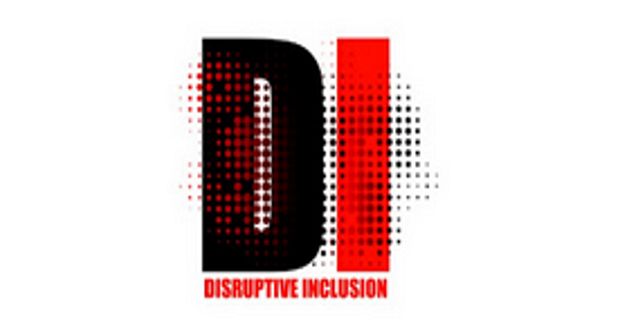Hypocrisy isn’t a good look on anybody, let alone an organization. This second installation to the Barriers to NextGen DEI/IDEAS Work series will dive into one the biggest challenges that organizations face (you probably guessed it already… money!) and how to navigate around resistance to investing into serious IDEAS (Inclusion, Diversity, Equity, Accessibility, and Social Justice) work.
Hypocrisy isn’t a good look on anybody, let alone an organization. Share on X
In 2020, our country underwent a national reckoning around race prompted by the police murder of George Floyd, Breonna Taylor, and others, which recentered the Black Lives Matter movement in national discourse. This call to action around racial justice resulted in the creation of more DEI statements and committees than ever before! Why? We know why. Bluntly, it was the easiest thing for organizations to do in order to show that they cared. Social media posts went up, ‘listening’ sessions were held, and more.
The beauty of these measures is that they were free, technically. They added additional hours of work time… but with folx on salary, these measures never cost organizations any real money. Realistically though, how many people in the organization prior to 2020 had any experience implementing institutional IDEAS changes in a way that was both effective and sustainable? How many of these organizations had a Chief Diversity Officer — or someone with the professional knowledge of how to lead IDEAS-centered initiatives? Recognizing the absence of these necessary skill sets and competencies within the organization, how many brought on IDEAS consultants to help them with the process? How many brought in someone for the visibility of the moment rather than a long-term strategic partner? I’m putting my money (purposeful bad joke) on my belief that there weren’t many at all that met these criteria.
I get it. Right about now you might be thinking, “But Desi, the pandemic affected revenue, and they just couldn’t afford it!” Sure, I hear you and I don’t necessarily disagree. However, I firmly believe in managing people’s expectations when it comes to an organization living up to its stated values and commitments rather than making promises that fall short when it comes to true implementation. How can companies expect to change if they’re not willing to do things differently themselves? With many organizations’ new or renewed commitment to IDEAS, many employees have also increased their expectations on what IDEAS in action actually looks like. This means that IDEAS work has become a foundation of employee satisfaction, engagement, and retention that must be met by an employer to prevent their employees from jumping ship. When an employee does jump ship, turnover costs put additional strain on organizations already hurting from the pandemic, because exiting employees take with them critical knowledge and experiences the company needs. For example, this Kapor report found that unfair treatment ranked number one for folx leaving tech jobs and that on average, each of them cost the organization $144K. Read that again, $144K. Who can afford to lose $144K in a pandemic??? Tech industry or not, organizations simply cannot afford to lose people because of unfair or inequitable experiences in the workplace.
DEI work has become a foundation of employee satisfaction, engagement, and retention that must be met to prevent employees from leaving. When an employee does jump ship, turnover costs put additional strain on orgs. Share on X
As an IDEAS consultant myself, my job is to help organizations become more inclusive, diverse, equitable, accessible, and just. A happy byproduct of success in IDEAS work means that organizations stop hemorrhaging money by mitigating actions/cultures that actively contradict IDEAS work, and thus result in employee exits. Additionally, according to a McKinsey study, diverse companies are 35% more likely to outperform those that are not diverse. Again, who can afford to leave a 35% increase in performance on the table in a pandemic???
Let’s colloquially break down some of the common pushbacks on investing in IDEAS work either through a new hire or bringing on IDEAS consultants.
This IDEAS work is too expensive!
I hear you. Out of curiosity though, how much have you spent on consultants for other ‘business imperatives?’ If you’re able to pay companies like McKinsey or Deloitte over six figures for management consulting, it seems like you are able to find the financial resources for things that are considered essential to the organization’s operations. That being said, your people are truly essential, and IDEAS work always aims to take care of the people first.
If you’re paying companies six figures for management consulting, you're able to find the financial resources for things that are considered essential. Your people are essential, and DEI work aims to take care of people first. Share on X
We don’t have any room in our budget for IDEAS work!
Oh really? Well according to the research I pulled on the organization from your 10-K (or 990) and your Annual Report, it looks like you DO actually have some room here to invest into IDEAS work. Also, how much do you spend on non-essential items like coffee, t-shirts (or other similar swag), or those fancy pens you like to use? I guarantee that if some adjustments were made, we could find a way to make this work.
We’ve made plenty of other changes at the organization without a budget!
Great! How are those going for you and what toll (financial or otherwise) might they have had on existing salaried employees? Did they feel overworked with the implementation without getting paid any extra for their time or have to compromise in other areas of their duties? If the change was implemented smoothly and with everyone happy, can you pinpoint what made success possible? Are the reasons for that success applicable to your IDEAS goals, or does IDEAS work seem more complicated than the change you’re referencing? IDEAS work cannot be taken piecemeal as those ad hoc efforts will inevitably be seen as performative and insufficient at best.
We already have a volunteer DEI Council, isn’t that enough?
While it’s great that you have committed employees volunteering their valuable time to advance IDEAS at the organization, which other mission-critical imperatives have been successfully and sustainably executed absent a full time, compensated leader? Would you let your operations or finances be run by an ad hoc group of passionate employees without the requisite professional experiences rather than hire a COO or CFO? IDEAS work often entails a complex interplay of competencies, including: change management, organizational and leadership development, astute emotional intelligence and incisive understandings of group dynamics, in-depth knowledge bases around identity and power and a myriad of other equally nuanced topics. And this is not to say that members of your council or committee don’t bring immense value to the group’s collective efforts, but to assume that successful IDEAS practice can be meaningfully harnessed by a part-time, volunteer group (on top of their other responsibilities) isn’t setting anyone up for success.
Would you let your operations or finances be run by an ad hoc group of passionate employees without professional experiences rather than hire a COO or CFO? DEI work often entails a complex interplay of competencies. Share on X
Our board and funders would never approve this budget for IDEAS work!
This is a problem in itself. If placating your funders or investors is more important than living up to IDEAS values (the ones you publicly claimed to have, as a reminder), then the organization itself is not ready for IDEAS work and the employees should have their expectations managed accordingly. The organization will continue to hemorrhage employees and money as stated above, because in this day and age, employees will not settle for less. A new standard of IDEAS-based business has been set, and if you’re not ready, you’re already falling behind. Additionally, any new donors will be looking for the same implementation of IDEAS values as new employees do, so avoiding this work may cost your organization even MORE by losing existing donors (who support the work) or failing to gain new ones. According to Rockefeller Philanthropy Advisors, “Philanthropists who want to increase impact and reduce waste are turning to diversity and inclusion as tools for effective giving… To make the most of their philanthropic dollars, donors practice due diligence. Staff, advisors and even donors themselves check financial information, perform site visits and talk to experienced stakeholders. This much is well known.”
If placating your funders or investors is more important than living up to IDEAS values (the ones you publicly claimed to have, as a reminder), then the organization itself is not ready for IDEAS work. Share on X
New donors will be looking for the same implementation of DEI values as new employees do, so avoiding this work may cost your org even MORE by losing existing donors or failing to gain new ones. Share on X
I started off this article highlighting how hypocrisy isn’t a good look on anyone, especially organizations. Any distance between words and monetary investment in IDEAS work at an organization will easily be sniffed out and identified. But we know this can be fixed with budget redistribution, flexibility, and the right motive. As consumers, we want to see companies do the right thing, not only because they can, but because they know that they should.
The next time an organization says that they can’t afford to do IDEAS work, tell them that they can’t afford not to.
The next time an organization says that they can’t afford to do IDEAS work, tell them that they can’t afford not to. Share on X



















